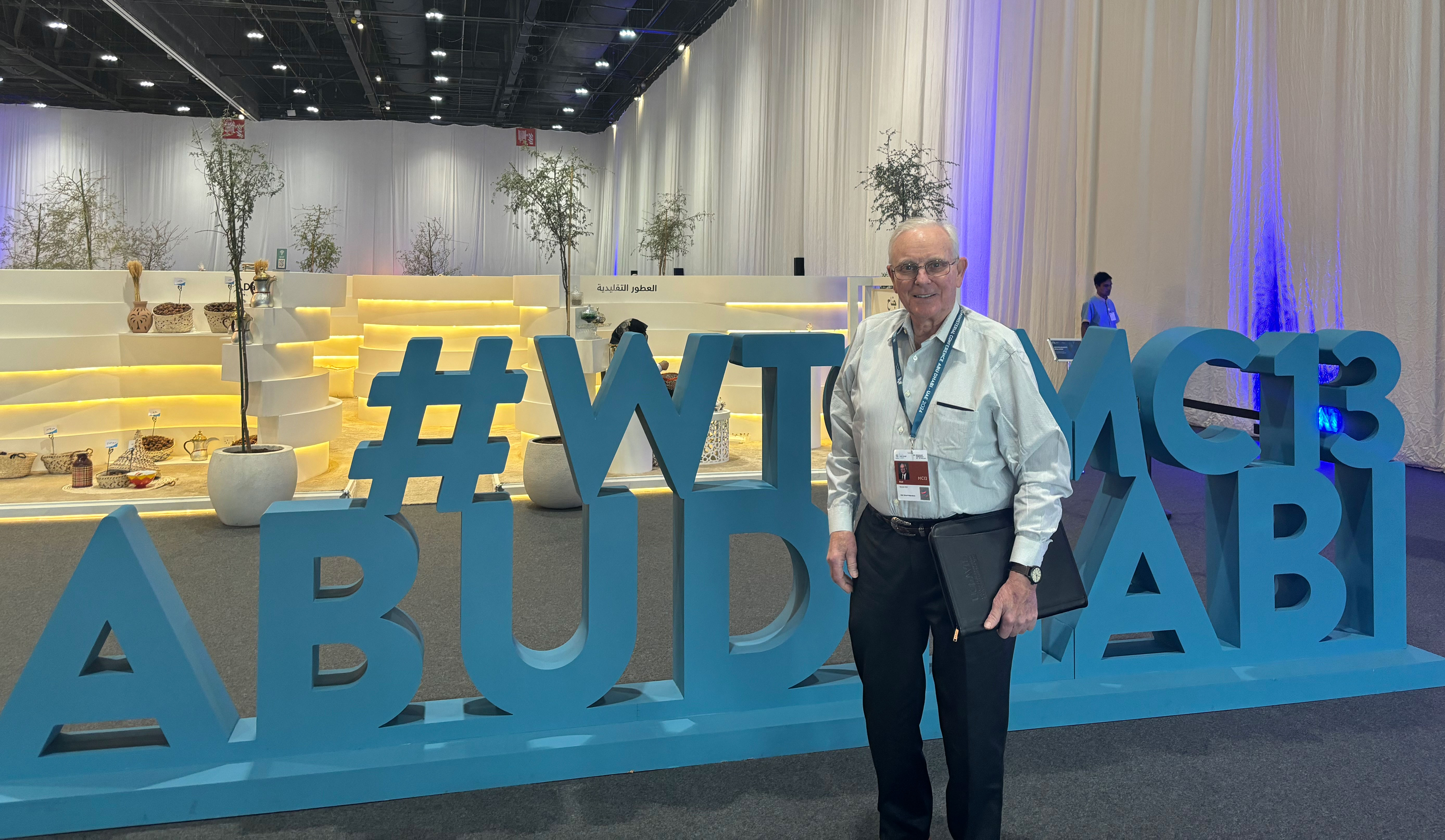 Michael Rue is boots on the ground for USA Rice at the WTO MC13
Michael Rue is boots on the ground for USA Rice at the WTO MC13
Mar 01, 2024
ABU DHABI, UAE – World trade ministers met here this week for the World Trade Organization (WTO) 13th Ministerial Conference (MC13). Agriculture, of course, made it on the list of hot topics as well as fisheries, dispute settlement, and the moratorium on e-commerce.
Michael Rue, a rice producer from California and co-vice chair of the USA Rice International Trade Policy Committee, and Karah Fissel, USA Rice director of international trade policy, joined the U.S. Agriculture Coalition for WTO Reform to represent U.S. rice interests on the ground at MC13.
While U.S. negotiators shared optimistic views early in the week, India remained a blockade in making meaningful progress on the discussion involving public stockholding (PSH), the practice by which India buys rice from its farmers at an established price and subsequently stores the grain until they decide to sell it to mills and other traders. Building a coalition of like-minded countries, the United States stood firm in its approach to push forward a comprehensive discussion on agriculture to include PSH, domestic support, market access, and export restrictions.
Meanwhile, the U.S. Ag Coalition met with key principles and stakeholders including the WTO Deputy Director General Angela Ellard, U.S. Ambassador to the WTO Maria Pagán, as well as other government delegations and agriculture groups to emphasize the importance of preserving the global trade mechanism and agricultural trade rules.
“The largest concern for the U.S. rice industry is India’s over-subsidization of rice. While India does not dispute the existence of this practice, they do underestimate their actual price supports. India’s over-subsidization impacts U.S. and world rice prices, decreasing our competitiveness abroad and at home in the United States, and disrupting food security in very troubled parts of the world,” said Rue. “We fundamentally oppose India’s use of market price support as an implementation tool for its public stockholding programs and we are troubled by the country’s persistent approach to block meaningful progress at the WTO and continue to defend its trade distorting practices in the name of food security.”
Throughout the week, U.S. negotiators shared updates, as they could, indicating their firm stance in lock step with U.S. Ag Coalition priorities as they wrapped up talks earlier today. Unsurprisingly, all 166 WTO members were not able to agree on an outcome for agriculture given the deep divides.
“We appreciate the hard work of our U.S. delegation here in Abu Dhabi,” said Rue. “Not much has changed with India and it’s a tough job they have to push forward a solution that all members will sign off on. While Indian farmers claim to be hurt by WTO rules, developed and developing countries alike agree that what India is doing on PSH can most certainly not be in the name of global food security.”